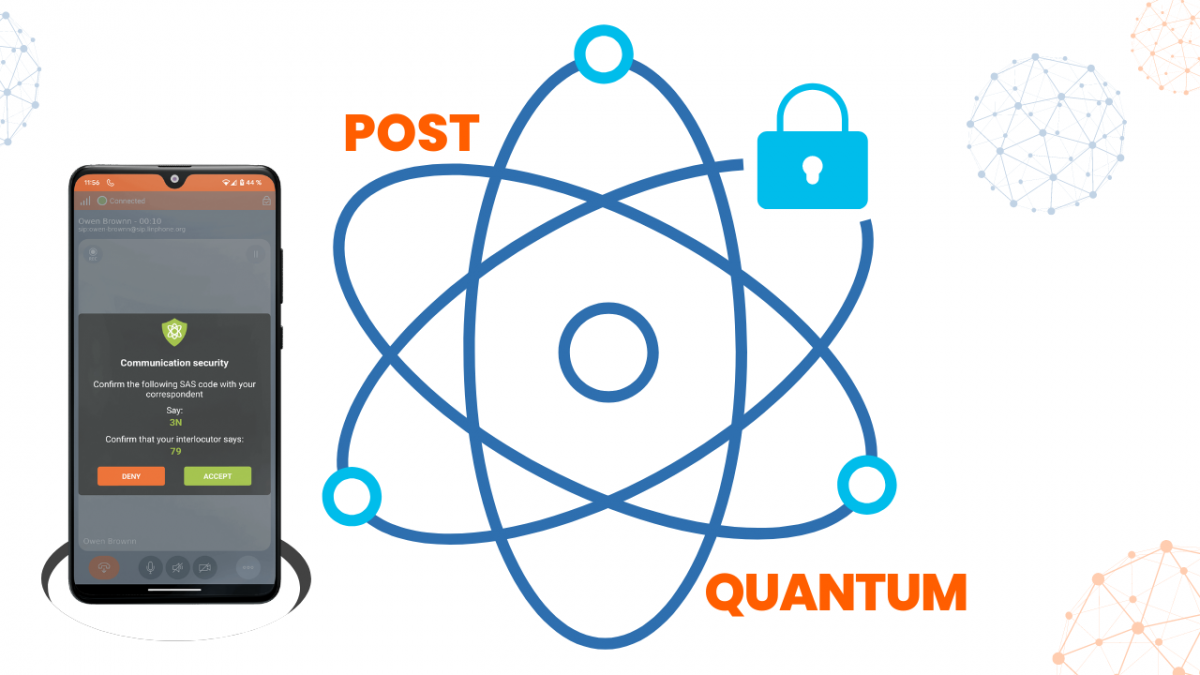Introduction: The exchange and protection of information have become essential components of our daily lives in our quickly evolving digital age. Traditional cryptography approaches are facing unprecedented challenges as cyber attacks become more sophisticated and quantum computers become a concern. As a result, a breakthrough solution – Post-Quantum Cryptography (PQC) and its seamless integration with powerful data encryption techniques – has emerged.
The Threat of Quantum Computing:
Quantum computers, when they become a reality, pose a significant threat to existing cryptographic algorithms. The sheer processing power of quantum computers can potentially break widely-used encryption methods, rendering sensitive data vulnerable to malicious actors. As we stand on the brink of the quantum era, it becomes imperative to explore and implement secure alternatives that can withstand the computing power of quantum machines.
Post-Quantum Cryptography:
Post-Quantum Cryptography, often abbreviated as PQC, is an innovative field of study that focuses on developing cryptographic algorithms resistant to quantum attacks. Unlike classical cryptographic methods that rely on the difficulty of certain mathematical problems, PQC leverages mathematical principles that are believed to be secure even in the face of quantum computing capabilities.
The Role of PQC in Data Encryption:
Algorithm Resilience:
PQC algorithms are designed to be resistant to attacks from both classical and quantum computers. These algorithms ensure that the confidentiality and integrity of data remain intact, even when exposed to the immense computational power of quantum machines.
Key Exchange Security:
PQC addresses vulnerabilities in key exchange protocols, which are crucial for establishing secure communication channels. Quantum-safe key exchange algorithms play a pivotal role in ensuring that communication remains confidential and tamper-proof, safeguarding sensitive information during transmission.
Future-Proofing Data Security:
Implementing PQC in data encryption strategies provides a proactive approach to future-proofing data security. As quantum computers continue to evolve, organizations that adopt PQC algorithms can stay ahead of potential threats, ensuring a robust defense against emerging cyber risks.
Industry Compliance and Standards:
With an increasing emphasis on data protection regulations and industry standards, the integration of PQC aligns organizations with best practices in cybersecurity. Demonstrating a commitment to adopting quantum-safe cryptographic measures can enhance compliance with regulatory requirements and foster trust among stakeholders.
Conclusion:
The role of Post-Quantum Cryptography in data encryption is pivotal for the sustained security of digital communications and information exchange. As we navigate the uncharted waters of quantum computing, the adoption of PQC ensures that our cryptographic systems remain resilient in the face of evolving cyber threats. Embracing these advancements is not just a technological necessity; it is a strategic imperative for organizations looking to secure their data and communications in the quantum era.
What is Post-Quantum Cryptography (PQC) and why is it necessary in today’s digital landscape?
Post-Quantum Cryptography is a field of study focused on developing cryptographic algorithms resistant to quantum attacks. In the current digital age, traditional cryptographic methods are at risk of being compromised by the potential computing power of quantum machines. PQC provides a solution to this threat by introducing algorithms designed to withstand both classical and quantum attacks.
How does Post-Quantum Cryptography enhance data encryption?
PQC enhances data encryption by introducing algorithms that remain secure even in the face of quantum computing capabilities. These algorithms ensure the resilience of key exchange protocols, safeguarding the confidentiality and integrity of data during transmission. The integration of PQC in data encryption strategies offers a proactive approach to future-proofing security measures.
What are the specific vulnerabilities that PQC addresses in key exchange protocols?
PQC addresses vulnerabilities in key exchange protocols by providing quantum-safe alternatives. Quantum computers have the potential to break traditional key exchange methods, compromising the security of communication channels. PQC algorithms offer robust solutions to ensure secure key exchange, maintaining the confidentiality of sensitive information.
How does the implementation of PQC contribute to industry compliance and standards?
The adoption of PQC aligns organizations with data protection regulations and industry standards. As cybersecurity becomes increasingly regulated, integrating PQC demonstrates a commitment to staying ahead of potential threats posed by quantum computers. This not only enhances compliance but also fosters trust among stakeholders by showcasing a dedication to cutting-edge security measures.
Why is future-proofing data security important, and how does PQC play a role in this strategy?
Future-proofing data security is crucial as technology evolves, especially with the imminent threat of quantum computing. PQC plays a pivotal role in this strategy by offering cryptographic algorithms designed to withstand the computational power of quantum machines. Organizations that embrace PQC not only stay ahead of emerging cyber risks but also ensure a robust defense against evolving threats in the quantum era.


